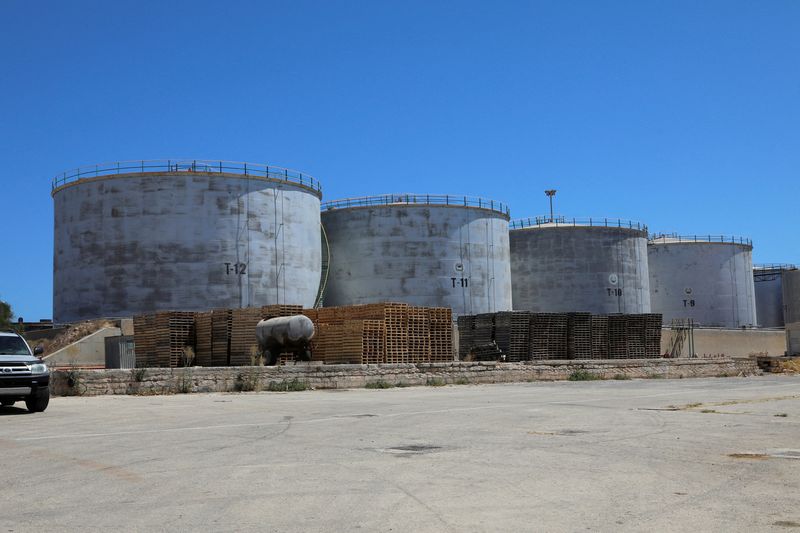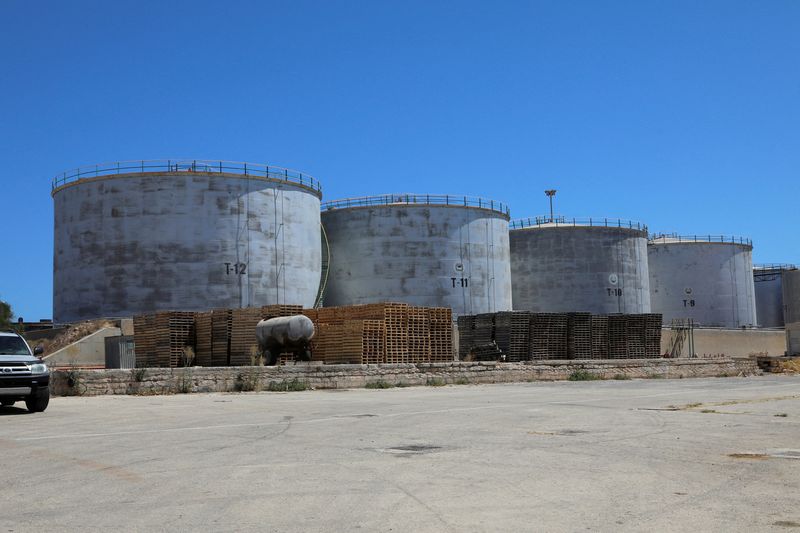
By Paul Carsten
LONDON (Reuters) – Oil prices fell in choppy trading on Wednesday after sources from OPEC+ told Reuters the producer group was discussing delaying a planned output increase in October, amid demand concerns and a possible return of Libyan production.
Brent crude futures were down 42 cents, or 0.6%, to $73.33 at 1337 GMT. U.S. West Texas Intermediate crude futures were down 40 cents, or 0.6%, at $69.94. Both benchmarks had earlier lost $1 and then bounced back to gain $1 from Tuesday’s closes, following the OPEC+ news.
A broader sell-off had seen prices for Brent crude futures tumble as much as 11%, or about $9, in a little over a week, hitting a low of $72.63 on Wednesday.
On Tuesday alone, benchmark prices plunged more than 4%.
Lacklustre data from the U.S. and China had strengthened persistent expectations of a weaker global economy and oil demand, helping set off a broader decline in world markets.
Meanwhile, traders believed there could be an end in sight to a dispute halting Libyan oil exports, bringing more crude supply back online.
That posed a challenge for OPEC+, which last week looked set to proceed with planned output hikes in October. The production group is now concerned about the market volatility, one of the sources said, and a delay to the hikes is being discussed.
“If OPEC+ does not provide reassurance that current output cuts would be extended more indefinitely, then the market could lose faith in OPEC+ defending the $70/bbl level,” Citi analysts wrote in a note.
Recent data releases fuelled wider concerns around weaker than expected demand from China, the world’s biggest crude importer, and U.S. consumption taking a hit.
Chinese data on Saturday showed manufacturing activity sank to a six-month low in August, when growth in new home prices slowed.
Meanwhile in the U.S., Institute for Supply Management data on Tuesday showed manufacturing remained subdued.

Weekly U.S. inventory data has been delayed by Monday’s Labor Day holiday. The report from the American Petroleum Institute is due at 4:30 p.m. EDT (2030 GMT) on Wednesday and data from the Energy Information Administration will be published at 11:00 a.m. EDT (1500 GMT) on Thursday.
U.S. crude oil and gasoline stockpiles were expected to have fallen last week, a preliminary Reuters poll showed. [EIA/S][API/S]
This post is originally published on INVESTING.




